10 start with W start with W

Japan has long wrestled with the memories and legacies of World War II. In the aftermath of defeat, war memory developed as an integral part of particular and divergent approaches to postwar democracy. In the last six decades, the demands placed upon postwar democracy have shifted considerably—from social protest through high economic growth to Japan’s relations in Asia—and the meanings of the war shifted with them.
This book unravels the political dynamics that governed the place of war memory in public life. Far from reconciling with the victims of Japanese imperialism, successive conservative administrations have left the memory of the war to representatives of special interests and citizen movements, all of whom used war memory to further their own interests.
Franziska Seraphim traces the activism of five prominent civic organizations to examine the ways in which diverse organized memories have secured legitimate niches within the public sphere. The history of these domestic conflicts—over the commemoration of the war dead, the manipulation of national symbols, the teaching of history, or the articulation of relations with China and Korea—is crucial to the current discourse about apology and reconciliation in East Asia, and provides essential context for the global debate on war memory.
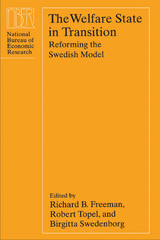
This volume presents ten essays that examine Sweden's economic problems from a U.S. perspective. Exploring such diverse topics as income equalization and efficiency, welfare and tax policy, wage determination and unemployment, and international competitiveness and growth, they consider how Sweden's welfare state succeeded in eliminating poverty and became a role model for other countries. They then reflect on Sweden's past economic problems, such as the increase in government spending and the fall in industrial productivity, warning of problems to come. Finally they review the consequences of the collapse of Sweden's economy in the early 1990s, exploring the implications of its efforts to reform its welfare state and reestablish a healthy economy.
This volume will be of interest to policymakers and analysts, social scientists, and economists interested in welfare states.

Following the end of World War II in Asia, the Allied powers repatriated over six million Japanese nationals from colonies and battlefields throughout Asia and deported more than a million colonial subjects from Japan to their countries of origin.
Depicted at the time as a postwar measure related to the demobilization of defeated Japanese soldiers, this population transfer was a central element in the human dismantling of the Japanese empire that resonates with other post-colonial and post-imperial migrations in the twentieth century.
Lori Watt analyzes how the human remnants of empire, those who were moved and those who were left behind, served as sites of negotiation in the process of the jettisoning of the colonial project and in the creation of new national identities in Japan. Through an exploration of the creation and uses of the figure of the repatriate, in political, social, and cultural realms, this study addresses the question of what happens when empire comes home.
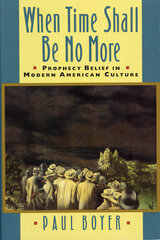
Millions of Americans take the Bible at its word and turn to like-minded local ministers and TV preachers, periodicals and paperbacks for help in finding their place in God’s prophetic plan for mankind. And yet, influential as this phenomenon is in the worldview of so many, the belief in biblical prophecy remains a popular mystery, largely unstudied and little understood. When Time Shall Be No More offers for the first time an in-depth look at the subtle, pervasive ways in which prophecy belief shapes contemporary American thought and culture.
Belief in prophecy dates back to antiquity, and there Paul Boyer begins, seeking out the origins of this particular brand of faith in early Jewish and Christian apocalyptic writings, then tracing its development over time. Against this broad historical overview, the effect of prophecy belief on the events and themes of recent decades emerges in clear and striking detail. Nuclear war, the Soviet Union, Israel and the Middle East, the destiny of the United States, the rise of a computerized global economic order—Boyer shows how impressive feats of exegesis have incorporated all of these in the popular imagination in terms of the Bible’s apocalyptic works. Reflecting finally on the tenacity of prophecy belief in our supposedly secular age, Boyer considers the direction such popular conviction might take—and the forms it might assume—in the post–Cold War era.
The product of a four-year immersion in the literature and culture of prophecy belief, When Time Shall Be No More serves as a pathbreaking guide to this vast terra incognita of contemporary American popular thought—a thorough and thoroughly fascinating index to its sources, its implications, and its enduring appeal.

“Deep, informed, and reeks of common sense.”
—Norman Ornstein
“It is now beyond debate that rising inequality is not only leaving millions of Americans living on a sharp edge but also is threatening our democracy…For activists and scholars alike who are struggling to create a more equitable society, this is an essential read.”
—David Gergen
We are in an age of crisis. That much we can agree on. But a crisis of what, exactly? And how do we get out of it?
In a follow up to their influential and much debated Death by a Thousand Cuts, Michael Graetz and Ian Shapiro focus on what really worries people: not what the rich are making or the government is taking from them but their own insecurity. Americans are worried about losing their jobs, their status, and the safety of their communities. They fear the wolf at the door. The solution is not protectionism or class warfare but better jobs, higher wages, greater protection for families suffering from unemployment, better health insurance, and higher quality childcare. And it turns out those goals are more achievable than you might think. The Wolf at the Door is one of those rare books that doesn’t just diagnose our problems, it shows how to address them.
“This is a terrific book, original, erudite, and superbly well-informed, and full of new wisdom about what might and what might not help the majority of Americans who have not shared in our growing prosperity, but are left facing the wolf at the door…Everyone interested in public policy should read this book.”
—Angus Deaton, Princeton University
“Graetz and Shapiro wrestle with a fundamental question of our day: How do we address a system that makes too many Americans anxious that economic security is slipping out of reach? Their cogent call for sensible and achievable policies…should be read by progressives and conservatives alike.”
—Jacob J. Lew, former Secretary of the Treasury
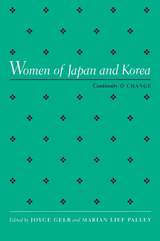

In these lyrical and powerful essays, Thomas Glave draws on his experiences as a politically committed, gay Jamaican American to deliver a condemnation of the prejudices, hatreds, and inhumanities that persist in the United States and elsewhere. Exposing the hypocrisies of liberal multiculturalism, Glave offers instead a politics of heterogeneity in which difference informs the theory and practice of democracy. At the same time, he experiments with language to provide a model of creative writing as a tool for social change. From the death of black gay poet Essex Hemphill to the revelations of abuse at Abu Ghraib, Glave puts forth an ethical understanding of human rights to make vital connections across nations, races, genders, and sexualities.
Thomas Glave is assistant professor of English at SUNY Binghamton. He is author of Whose Song? and Other Stories.
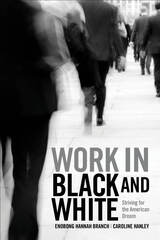
The ability to achieve economic security through hard work is a central tenet of the American Dream, but significant shifts in today’s economy have fractured this connection. While economic insecurity has always been a reality for some Americans, Black Americans have historically long experienced worse economic outcomes than Whites. In Work in Black and White, sociologists Enobong Hannah Branch and Caroline Hanley draw on interviews with 80 middle-aged Black and White Americans to explore how their attitudes and perceptions of success are influenced by the stories American culture has told about the American Dream – and about who should have access to it and who should not.
Branch and Hanley find that Black and White workers draw on racially distinct histories to make sense of today’s rising economic insecurity. White Americans have grown increasingly pessimistic and feel that the American Dream is now out of reach, mourning the loss of a sense of economic security which they took for granted. But Black Americans tend to negotiate their present insecurity with more optimism, since they cannot mourn something they never had. All educated workers bemoaned the fact that their credentials no longer guarantee job security, but Black workers lamented the reality that even with an education, racial inequality continues to block access to good jobs for many.
The authors interject a provocative observation into the ongoing debate over opportunity, security, and the American Dream: Among policymakers and the public alike, Americans talk too much about education. The ways people navigate insecurity, inequality, and uncertainty rests on more than educational attainment. The authors call for a public policy that ensures dignity in working conditions and pay while accounting for the legacies of historical inequality.
Americans want the game of life to be fair. While the survey respondents expressed common ground on the ideal of meritocracy, opinions about to achieve economic security for all diverge along racial lines, with the recognition – or not – of differences in current and past access to opportunity in America.
Work in Black and White is a call to action for meaningful policies to make the premise of the American Dream a reality.
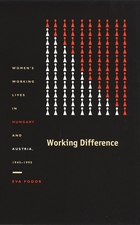
Fodor brings qualitative and quantitative analyses to bear, combining statistical analyses of survey data, interviews with women managers in both countries, and archival materials including those from the previously classified archives of the Hungarian communist party and transcripts from sessions of the Austrian Parliament. She shows how women's access to power varied in degree and operated through different principles and mechanisms in accordance with the stratification systems of the respective countries. In Hungary women's mobility was curtailed by political means (often involving limited access to communist party membership), while in Austria women's professional advancement was affected by limited access to educational institutions and the labor market. Fodor discusses the legacies of Austria's and Hungary's "gender regimes" following the demise of state socialism and during the process of integration into the European Union.
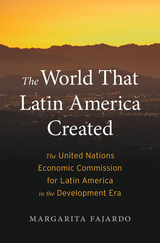
How a group of intellectuals and policymakers transformed development economics and gave Latin America a new position in the world.
After the Second World War demolished the old order, a group of economists and policymakers from across Latin America imagined a new global economy and launched an intellectual movement that would eventually capture the world. They charged that the systems of trade and finance that bound the world’s nations together were frustrating the economic prospects of Latin America and other regions of the world. Through the UN Economic Commission for Latin America, or CEPAL, the Spanish and Portuguese acronym, cepalinos challenged the orthodoxies of development theory and policy. Simultaneously, they demanded more not less trade, more not less aid, and offered a development agenda to transform both the developed and the developing world. Eventually, cepalinos established their own form of hegemony, outpacing the United States and the International Monetary Fund as the agenda setters for a region traditionally held under the orbit of Washington and its institutions. By doing so, cepalinos reshaped both regional and international governance and set an intellectual agenda that still resonates today.
Drawing on unexplored sources from the Americas and Europe, Margarita Fajardo retells the history of dependency theory, revealing the diversity of an often-oversimplified movement and the fraught relationship between cepalinos, their dependentista critics, and the regional and global Left. By examining the political ventures of dependentistas and cepalinos, The World That Latin America Created is a story of ideas that brought about real change.
READERS
Browse our collection.
PUBLISHERS
See BiblioVault's publisher services.
STUDENT SERVICES
Files for college accessibility offices.
UChicago Accessibility Resources
home | accessibility | search | about | contact us
BiblioVault ® 2001 - 2024
The University of Chicago Press









